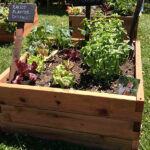In an era where sustainability is at the forefront of our minds, many individuals are turning to DIY natural cleaning products as a viable alternative to the chemical-laden options on store shelves. These eco-friendly solutions not only reduce the chemical footprint in our homes but also offer a cost-effective way to maintain cleanliness. Whether you’re a seasoned homesteader or someone just beginning to explore the world of natural living, this guide is here to help you make the transition smoothly.

Why Choose DIY Natural Cleaning Products?
The primary reason people opt for DIY natural cleaning products is their commitment to a healthier and more sustainable lifestyle. Commercial cleaning products often contain harsh chemicals that can be harmful to both our health and the environment. By making your own cleaning solutions, you have control over the ingredients, ensuring they are safe for your family and pets. Moreover, many of these ingredients are already found in your pantry, making them an economical choice.
Ingredients You Need to Get Started
Before diving into recipes, it’s important to gather the right ingredients. Common items include:
- Baking Soda: Known for its deodorizing properties, it’s a staple in most cleaning recipes.
- White Vinegar: A natural disinfectant that breaks down dirt and grime.
- Lemon Juice: Its antibacterial properties make it perfect for cutting through grease.
- Essential Oils: Not only do they add fragrance, but oils like tea tree and lavender have natural antibacterial properties.
Simple DIY Natural Cleaning Recipes
All-Purpose Cleaner
Mix one part water with one part vinegar in a spray bottle. Add a few drops of your favorite essential oil for fragrance. This solution can be used on most surfaces, excluding natural stone.
Glass Cleaner
Combine two cups of water, half a cup of vinegar, and a quarter cup of rubbing alcohol. Use a microfiber cloth for a streak-free shine.
Bathroom Scrub
Create a paste using baking soda and water. Apply it to surfaces, scrub with a brush, and rinse clean. For added disinfecting power, spray vinegar on top before scrubbing.
Tips for Successful DIY Cleaning
When using DIY natural cleaning products, a few tips can help enhance their effectiveness:
- Always test a small area first to ensure the solution does not damage the surface.
- Label your cleaning products clearly to avoid confusion.
- Store solutions in cool, dry places to maintain their potency.
Safety Precautions
While natural, some ingredients can still cause irritation or reactions. Always wear gloves when cleaning and ensure rooms are well-ventilated. Keep these products out of reach of children and pets.
Transitioning to a Natural Cleaning Routine
Switching to DIY natural cleaning products may seem daunting at first, but by gradually replacing one product at a time, the transition can be seamless. Start with the products you use most frequently, such as all-purpose cleaners, and gradually incorporate others.
For those interested in a broader sustainable lifestyle, consider reading about homesteading at home and exploring root cellar storage ideas to complement your eco-friendly cleaning efforts.
Benefits Beyond Cleaning
The benefits of using DIY natural cleaning products extend beyond just cleanliness. They promote a healthier indoor environment, reduce exposure to allergens, and support a sustainable lifestyle. By embracing these natural alternatives, you’re contributing to a more environmentally friendly world.
For more insights on sustainable living, check out this urban homesteading guide for additional tips and practices.
Common Challenges and Solutions
While the benefits are numerous, some challenges may arise when using natural products. For instance:
- Stubborn stains: For tough stains, allow the cleaning solution to sit longer before scrubbing.
- Streaks on glass: Ensure you use a microfiber cloth and avoid cleaning in direct sunlight.
Incorporating Essential Oils
Essential oils not only add pleasant scents to your cleaning products but also enhance their effectiveness. Oils such as tea tree, eucalyptus, and lavender have strong antibacterial properties, making them perfect additions to your DIY natural cleaning products.
Choosing the Right Essential Oils
When selecting essential oils, consider both their scent and properties. For example, citrus oils are great for cutting through grease, while peppermint oil can deter pests.
Cost-Effectiveness of DIY Products
One of the biggest advantages of DIY natural cleaning products is their cost-effectiveness. By using ingredients you already have at home, you can save a significant amount compared to purchasing commercial products.
Budget-Friendly Tips
Buy ingredients in bulk to save even more. Also, look for sales on essential oils and other key ingredients.
Environmental Impact
By choosing DIY natural cleaning products, you reduce your environmental footprint. These products are biodegradable and free from harmful chemicals, making them safer for our waterways and wildlife.
Reducing Plastic Waste
Reuse old spray bottles and containers to store your homemade products, further minimizing plastic waste.
Conclusion
Embracing DIY natural cleaning products is a rewarding journey towards a healthier home and planet. With simple ingredients, easy recipes, and a commitment to sustainability, you can transform your cleaning routine and make a positive impact. For more on sustainable living, consider exploring urban homesteading for beginners.

FAQ Section
Are DIY natural cleaning products effective?
Yes, when used correctly, they are highly effective and safe for various surfaces.
Can I use these products on all surfaces?
While many surfaces are safe, always test an inconspicuous area first to ensure compatibility.
How can I make my DIY cleaning products last longer?
Store them in a cool, dark place and ensure they are tightly sealed to maintain potency.






